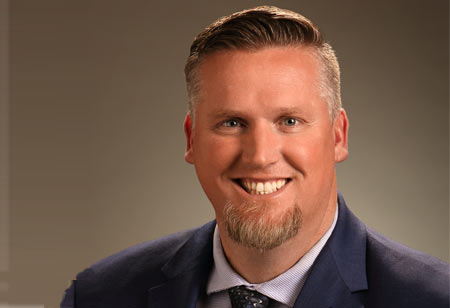Thank you for Subscribing to Healthcare Business Review Weekly Brief

First stab at medication reconciliation
Healthcare Business Review
Medication reconciliation, an issue that is encountered by patients who interact with multiple healthcare providers, each contributing prescriptions to their treatment, highlights a persistent challenge that exists within our contemporary healthcare system. Despite the wealth of information and technological resources at our disposal, the accurate maintenance of a patient’s medication list, accessible to the various healthcare providers overseeing their care, remains an elusive goal. This problem is not limited to specific healthcare environments such as hospitals or medical groups; its repercussions reverberate across the entire spectrum of healthcare professionals, revealing a systemic issue that requires careful consideration and innovative solutions.
The origins of errors and gaps in medication reconciliation can be traced to both individual patient circumstances and broader factors ingrained within the structure of the American healthcare system. While patient-specific factors such as forgetfulness, non-adherence, and communication breakdowns certainly contribute to the problem, they exist within a larger framework characterized by disjointed healthcare information systems, inadequate communication channels, and misaligned incentives. It is this misalignment of incentives that serves as a focal point for understanding the complexities surrounding medication reconciliation.
As the healthcare industry grapples with a transition from traditional fee-for-service models to more accountable care approaches, questions arise regarding the ownership of responsibilities. Who bears the onus of ensuring that patients are equipped with the knowledge and tools to independently manage their medication needs through each transition of care? This question exposes a fundamental gap in how we provide care to patients – a gap that impacts not only medication reconciliation but also the broader patient experience and outcomes. The solution to this challenge necessitates a collective reimagining of patient care in a more holistic and integrated manner.
Amid the myriad changes precipitated by the global pandemic, one transformation that merits greater recognition is the widespread adoption of telehealth and technology-driven solutions. These innovations, once viewed as supplementary to traditional healthcare, swiftly assumed a central role in maintaining continuity of care when physical interactions were limited. Patients, previously hesitant or unfamiliar with these tools, were compelled to embrace them, revealing the potential of technology to bridge gaps in care delivery and empower patients to take a more active role in their health management.
In the pursuit of patient-centered solutions, healthcare systems and a diverse array of providers are compelled to address not only the misaligned incentives but also the imperative of bolstering patients' technological literacy.
Achieving a healthcare ecosystem that prioritizes patient needs demands a multi-pronged approach. First, healthcare institutions must invest in interoperable electronic health record systems that facilitate seamless communication between providers. This ensures that a patient's medication list remains up-to-date and accessible to all relevant caregivers. Second, as the transition to value-based care gains momentum, it becomes crucial to establish clear lines of responsibility for medication reconciliation. This might involve designating a specific healthcare professional, such as a clinical pharmacist or care coordinator, to oversee and manage a patient's medication regimen, particularly during transitions of care.
Furthermore, patient education emerges as a pivotal component of the solution. Patients must be empowered with the knowledge and skills to actively participate in their care, including understanding their medications, adhering to prescribed regimens, and communicating changes to their healthcare providers. This necessitates a collaborative effort involving healthcare professionals, pharmacists, and patient advocates to develop educational resources that are accessible and understandable.
“Achieving a healthcare ecosystem that prioritizes patient needs demands a multi-pronged approach.”
The broader societal shift towards patient-centered care compels us to address not only technological literacy but also the concept of patient agency. Patients, accustomed to a largely paternalistic model of care, are gradually being recognized as partners in their own health journey. This evolution demands that healthcare providers not only convey medical information but also actively engage patients in shared decision-making regarding their treatment plans. Such an approach acknowledges the patient's unique circumstances, preferences, and goals, leading to more tailored and effective care.
In conclusion, the issue of medication reconciliation encapsulates a larger predicament within modern healthcare – a fragmented system that requires a fundamental shift towards integration, patient empowerment, and technological proficiency. While individual patient behaviors and systemic factors contribute to this challenge, it is the misalignment of incentives that stands out as a significant barrier to effective medication reconciliation. As we navigate the landscape of evolving healthcare models, it is imperative that we address these issues collectively. By investing in interoperable systems, clarifying responsibilities, enhancing patient education, and fostering shared decision-making, we can aspire to a healthcare system that not only reconciles medications but also reconciles its relationship with the patients it serves.









